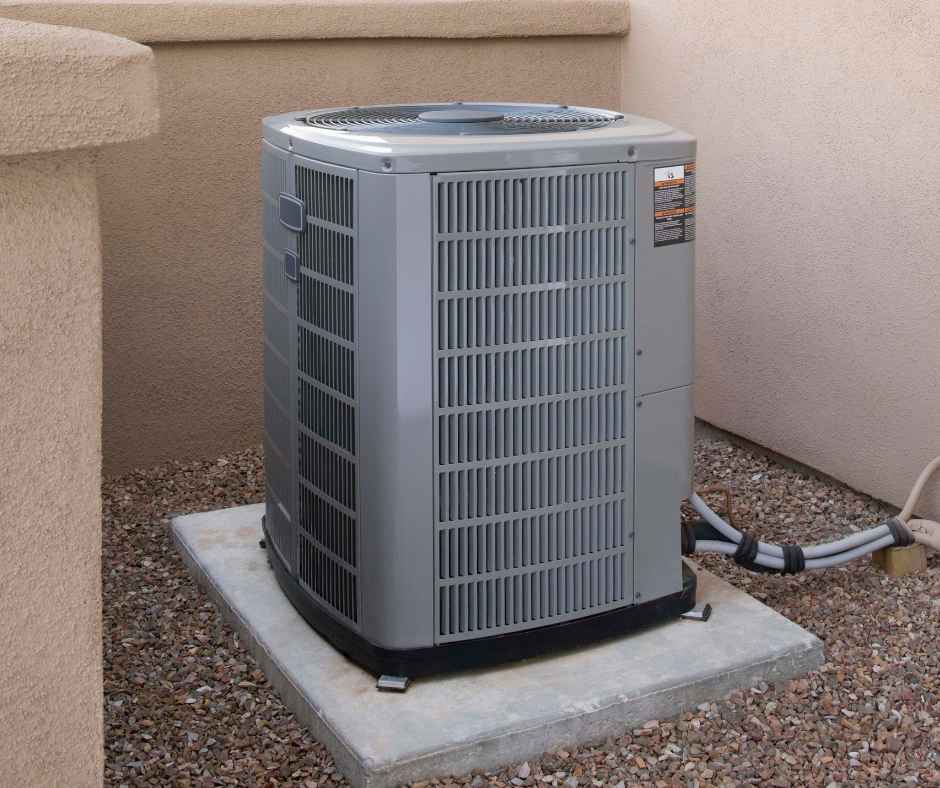Serving Durham and Surrounding Areas

Should I Leave My AC On All Day?
When temperatures soar, many homeowners wonder: should I leave my AC on all day? Is it better to keep it running consistently, or should you turn it off when you’re not home? Understanding how your air conditioner operates and how energy efficiency plays a role can help you make the best decision for comfort and cost savings.
The Basics of AC Operation
Your air conditioner works by cycling on and off to maintain the desired indoor temperature. When you leave your AC on all day, it continuously regulates the temperature, preventing excessive heat buildup. However, this doesn’t always mean it’s the most efficient or cost-effective approach.
Is It Better to Leave AC On All Day?
A common misconception is that it’s better to leave the AC on all day rather than turning it off and on. While this might make sense at first glance, the reality is a bit more complicated.
Leaving your AC on all day means it will run continuously, consuming energy even when cooling isn’t immediately necessary. Modern HVAC systems are designed to operate efficiently in cycles, so turning the AC off while you’re away for extended periods can reduce energy consumption. However, this strategy depends on factors such as insulation, outdoor temperatures, and your home’s cooling system.
Is It Cheaper to Keep the AC On All Day?
Many homeowners ask, “Is it cheaper to keep the AC on all day?” The answer depends on how your system is used. Running your AC all day at a consistent temperature might seem like a way to maintain efficiency, but it can lead to unnecessary energy waste.
Instead, consider using a programmable thermostat. By setting the temperature higher when you’re not home and lowering it when you return, you can save money on energy bills without sacrificing comfort. According to the U.S. Department of Energy, raising your thermostat by 7–10 degrees for 8 hours a day can cut cooling costs by up to 10%.
Is It Cheaper to Keep AC On All the Time?
Another variation of this question is whether it’s cheaper to keep the AC on all the time rather than turning it off periodically. If your home is well-insulated and your AC is properly maintained, turning it off for extended periods can be more cost-effective.
However, in extremely hot climates, turning off the AC for too long can cause your home to heat up significantly, requiring more energy to cool it back down. The key is to find a balance—use a programmable thermostat to adjust the temperature based on when you’re home and when you’re away.
Is It More Efficient to Keep AC On?
Some believe it’s more efficient to keep the AC on rather than allowing the system to cycle off. While running the AC in short, frequent cycles can be inefficient, keeping it on constantly is not necessarily the best solution.
Energy efficiency depends on how well your AC unit can maintain the set temperature without overworking. Regular AC maintenance ensures your system runs efficiently, while proper insulation and sealing prevent cool air from escaping.
How to Maximize AC Efficiency
If you want to maintain a comfortable indoor temperature while minimizing energy costs, consider the following tips:
1. Use a Programmable Thermostat
A smart or programmable thermostat can automatically adjust temperatures based on your schedule. Setting a higher temperature when you’re away and lowering it before you return can save energy without sacrificing comfort.
2. Close Blinds and Curtains
Sunlight streaming through windows can significantly increase indoor temperatures. Keeping blinds and curtains closed during peak sunlight hours helps reduce heat gain.
3. Improve Insulation
Good insulation prevents heat from entering your home and cool air from escaping. Sealing gaps around doors and windows further enhance efficiency.
4. Schedule Regular AC Maintenance
Routine AC maintenance ensures your system runs smoothly and efficiently. Dirty filters, clogged coils, and refrigerant issues can cause your AC to work harder than necessary, leading to higher energy bills.
5. Use Ceiling Fans
Ceiling fans help circulate cool air, reducing the need to lower your thermostat excessively. This allows your AC to work less while maintaining comfort.
6. Avoid Extreme Temperature Changes
Drastically changing your thermostat settings can force your AC to work harder. Instead, make gradual adjustments to prevent unnecessary strain on the system.
When to Consider AC Repair
Even with regular maintenance, air conditioners can develop issues over time. If you notice any of the following signs, it may be time for AC repair:
- Weak airflow or inconsistent cooling
- Unusual noises like grinding or banging
- Frequent cycling on and off
- Higher-than-usual energy bills
- Warm air blowing from vents
Ignoring these signs can lead to bigger problems, including complete system failure. Timely AC repair can help you avoid costly replacements and ensure your home stays comfortable.
The Verdict: Should You Leave Your AC On All Day?
So, should you leave your AC on all day? The best approach depends on your home, climate, and cooling needs. In most cases, it’s more efficient and cost-effective to use a programmable thermostat, maintain your AC regularly, and take steps to reduce heat buildup.
For expert AC repair and AC maintenance, trust Ted’s HVAC, Plumbing & Electric. Contact us today to keep your system running efficiently and your home comfortable year-round.

